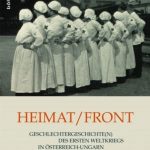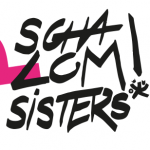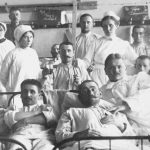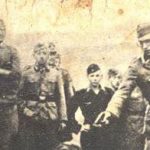 AK Kärnten: Sendung „PANOPTIKUM Bildung“ (Web)
AK Kärnten: Sendung „PANOPTIKUM Bildung“ (Web)
Zeit: 19.03.2021, 18.00 Uhr: Radio AGORA (Web)
Wiederholungen: 25.03.2021, 09.00 Uhr: Radio Helsinki (Web) und 26.03.2021, 08.00 Uhr: Radio Oberpullendorf (Web)
Die Radiosendung kann später auf der Website von „PANOPTIKUM Bildung“ nachgehört werden (Web).
Das 20. Jhd. war geprägt von Kriegen und militärischen Konflikten. Obwohl von der Geschichtsschreibung lange Zeit kaum bis gar nicht berücksichtigt, waren auch unzählige Frauen von der davon ausgehenden Gewalt unmittelbar betroffen: etwa im Kriegsdienst als Krankenschwestern oder als Zivilistinnen, die vielfach zu Opfern sexueller Gewalt wurden.
Aufgrund der industrialisierten Kriegführung erreichte schon der Erste Weltkrieg eine neue Dimension der Gewalteskalation. Kriegskrankenpflegerinnen waren damit oft direkt konfrontiert. Während des Krieges heroisiert, wurden sie danach kaum erinnert oder wertgeschätzt. Die Kriegserlebnisse ehemaliger Offiziere dominierten die österreichische Erinnerungskultur. Entgegen der Auffassung, dass der Erste Weltkrieg eine „Krise der Männlichkeit“ auslöste, verfestigte er letztlich Geschlechterstereotype, laut denen die Frau für die Friedfertigkeit, das Heilen und Lindern steht, der Mann für Krieg und Militarismus.
Nicht an der Front zu stehen bedeutete für die Frauen keineswegs, dass sie von gewalttätigen Übergriffen verschont blieben. Sexueller Gewalt kam auch die Funktion als Kriegswaffe zu, um den Feind zu entehren und um die Moral der eigenen Soldaten zu stärken. Das wohl bekannteste Beispiel dafür aus der Zeit des Pazifikkrieges stellt das Schicksal der „Trostfrauen“ dar. Diese Art der sexuellen Versklavung von Frauen und Mädchen durch die japanische Armee wurde erst 2008 seitens der UN als Kriegsverbrechen eingestuft.
Im Studiogespräch erläutert Christa Hämmerle von der Universität Wien anhand ausgewählter Beispiele, welche Auswirkungen die Weltkriege und bewaffneten Auseinandersetzungen auf Frauen hatten. Mit im Studio diskutiert Maria Fritsche von der Norwegian University of Science and TechnologY und Anna Enderle vom Institut für die Geschichte der Kärntner Arbeiterbewegung.
„PANOPTIKUM Bildung“ wird gestaltet von Heinz Pichler, Bildungsexperte der AK Kärnten: Jeden Continue reading





